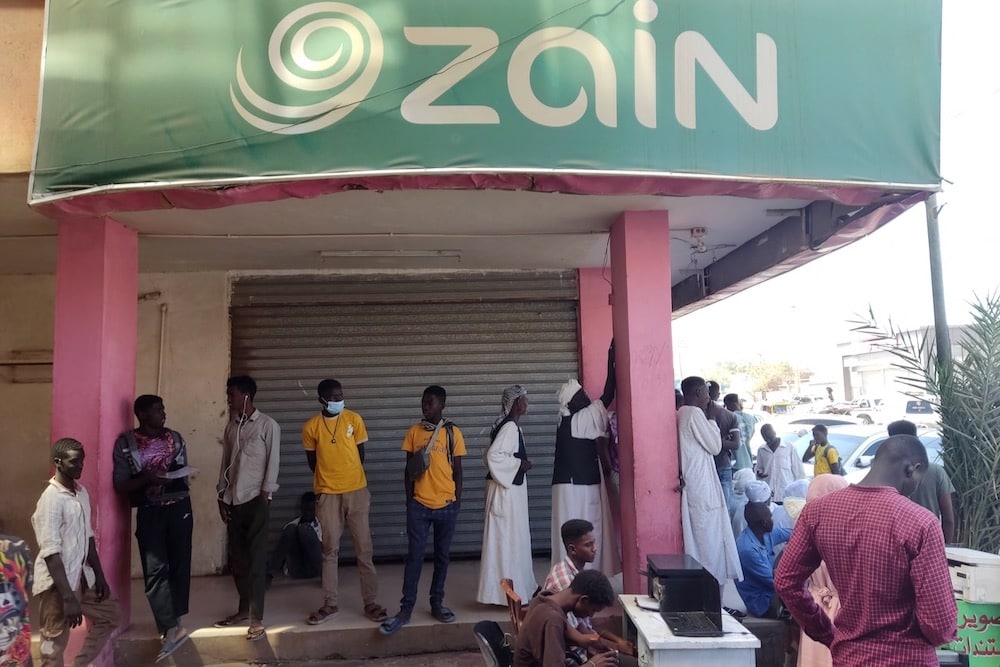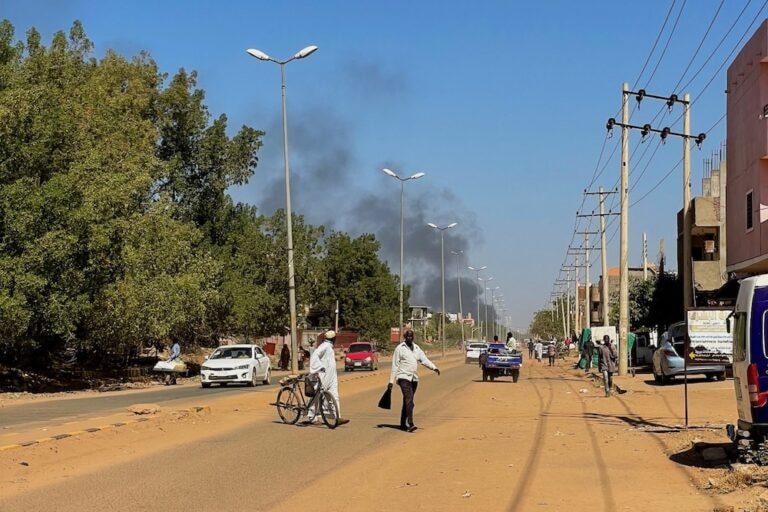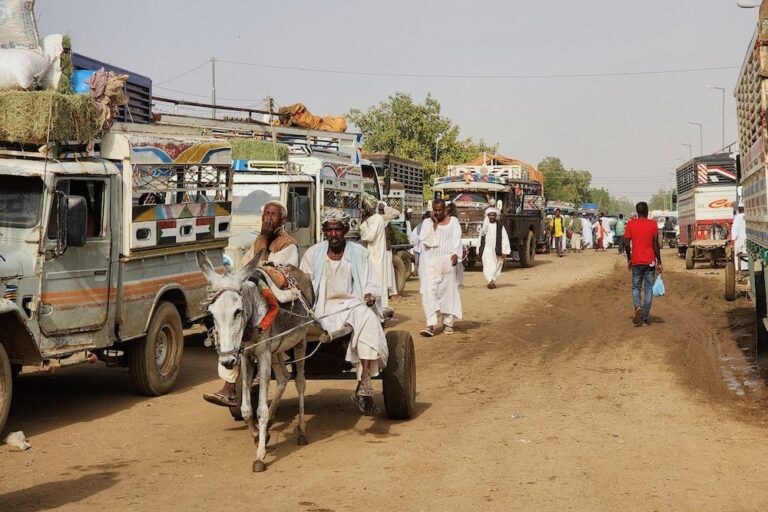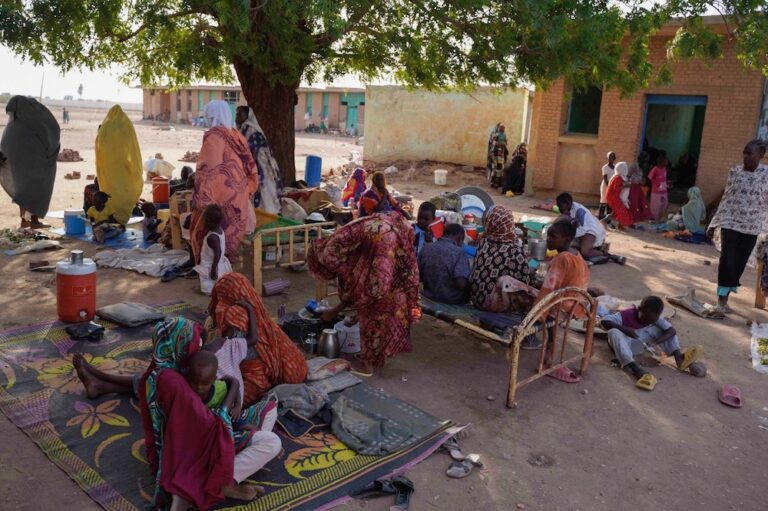CPJ spoke to Ataf Mohamed, editor-in-chief of local independent newspaper 'Al-Sudani' on the scope of the blackout and its impact on news coverage.
This statement was originally published on cpj.org on 21 March 2024.
For the last six weeks, Sudan has been almost totally cut off from the world. Since early February, there has been an internet and telecommunications blackout in the country, where a war between the Sudanese army and the paramilitary Rapid Support Forces (RSF) has killed more than 13,000, displaced millions, and threatens to cause widespread famine. Industry sources told Reuters that RSF was to blame for the blackout, which RSF has denied. In recent days, some telecommunications providers have been gradually restoring services in different areas, including in parts of Khartoum.The blackout — hardly the country’s first internet shutdown — has impeded aid, commerce, and the ability to send and receive money abroad. It has also rendered the work of journalists, already under strain, nearly impossible. Some Sudanese have used Elon Musk’s Starlink satellite internet system to get online, but connectivity is unreliable. Many journalists have fled in order to keep covering the war from abroad.
Ataf Mohamed, editor-in-chief of local independent newspaper Al-Sudani, is now running the newsroom from the Egyptian capital Cairo. CPJ spoke with him about the scope of the blackout and what it’s meant for news coverage. The interview has been edited for clarity and length.
Can you talk about the scale of the current blackout?
Network interruptions are not new in Sudan. We have been seeing networks going in and out since the start of the war. Before, the reoccurring network interruptions were mainly due to the ongoing fighting between the Sudanese army and the RSF, which resulted in destroying many mobile towers, repeated power outages, and fuel shortages. There wasn’t complete darkness. This meant that if the network was interrupted in one area, you can still go to another neighborhood and get a connection. Or if a network provided by one telecom company was interrupted in one area, you would still be able to find another network provided by another company working in that same area. But since February 7, most of Sudan has been in complete darkness, all at once, making it completely isolated from the whole world.
Who do you think is responsible for the blackout, and why?
I did an independent [unpublished] investigation, and I spoke with officials, and it is evident that the RSF is behind this. Since they [RSF] captured al-Gezira State [in December], the RSF have been interrupting the network in areas they take control over. But since February 7, they severed the communications in most areas in Sudan including Khartoum. Their goal was to twist the army’s arm, but since the army has its own internal networks, and its own satellites, they don’t rely on everyday telecommunication services to communicate. Which means that what the RSF ended up doing is twisting the neck of the Sudanese people who are suffering the most from this blackout.
Their goal now is to crack down on the Sudanese people and have control over their communications, by exploiting them and making a fortune by providing internet connection to them through Starlink devices. These devices rely on satellites to provide Wi-Fi connection privately. I am currently working on a report and investigating how the RSF have turned the sale of Starlink devices in Sudan into a business. With no internet in the country, Sudanese people can get Wi-Fi signal through these devices that RSF soldiers set up in different locations, and they can immediately gain access to the internet. However, the RSF charge people by the hour to give them access to the internet, and an hour can go up to 3,500 Sudanese pounds [approximately US$6] which is very expensive and unaffordable to most Sudanese people. Yet people are forced to pay and connect to the internet through them so they can check on their families and loved ones.
[Editor’s note: CPJ emailed RSF asking whether the group is responsible for the blackout, whether it has profited from the sale of Starlink devices, and whether it tracks journalists using Starlink devices to prevent coverage of alleged atrocities, but received no reply. CPJ also emailed the Sudanese army about the cause of the blackout but did not receive a response.]
How has the blackout affected journalists’ ability to cover the war?
Twenty-three print newspapers have completely shut down, ending print journalism completely in Sudan. They say democracy dies in darkness, and with no print journalism, there is darkness about what’s going on in the country.
With an actual network blackout, it has become almost impossible to access information. A lot of journalists on the ground today rely on Starlink to get access to the internet, which is very dangerous because the RSF can locate any journalist using their service to publish anything, and therefore retaliate against them for covering the atrocities the RSF commit in Sudan. Even though the telecommunications services by Sudani have been coming and going lately, internet service is still mainly provided through Starlink devices.
Also, journalists often must walk over 10 kilometers [6 miles] to find internet, which is very dangerous, especially in war zones. This makes reporting the most basic pieces of information very slow, which defies the whole purpose of breaking news, and a lot of our work becomes irrelevant since it’s not published on time.
It is like we are back to the dark ages. At this point, it might be easier to rely on pigeons to send messages across the country, but I am sure that they would be hunted down by the RSF and sold as food at very expensive prices.
[Editor’s note: CPJ was unable to independently confirm the closure of 23 print newspapers in Sudan.]
How has this blackout affected you and your work?
Even though I moved to Egypt three months ago, the blackout in Sudan has taken a toll on me and every other journalist working and covering the war from afar. Personally, I can’t send money to my family in Sudan to help them through these tough times. One day I learned that a friend of mine got access to internet inside Sudan, so I ran to catch him while his network lasted so I can send him money to send to my family.
In terms of reporting, we [Al-Sudani] have been relying completely on a team of local journalists on the ground to physically go to areas under the control of the RSF to access internet through Starlink and send us updates to report on from here [Cairo]. It is very dangerous for them to walk all that distance to send some information that can actually put them in danger.
Also, there have been many friends and family members who I wasn’t able to reach and check up on for months now. Journalists in Sudan rely on private Facebook and WhatsApp groups to share information about the war and stay connected. Now, when a journalist based in a war zone shows up in the group after a while and says hi, we celebrate that he’s alive.



